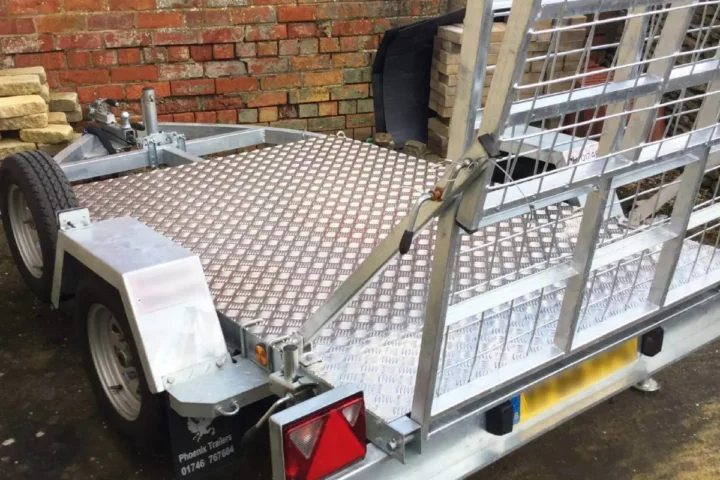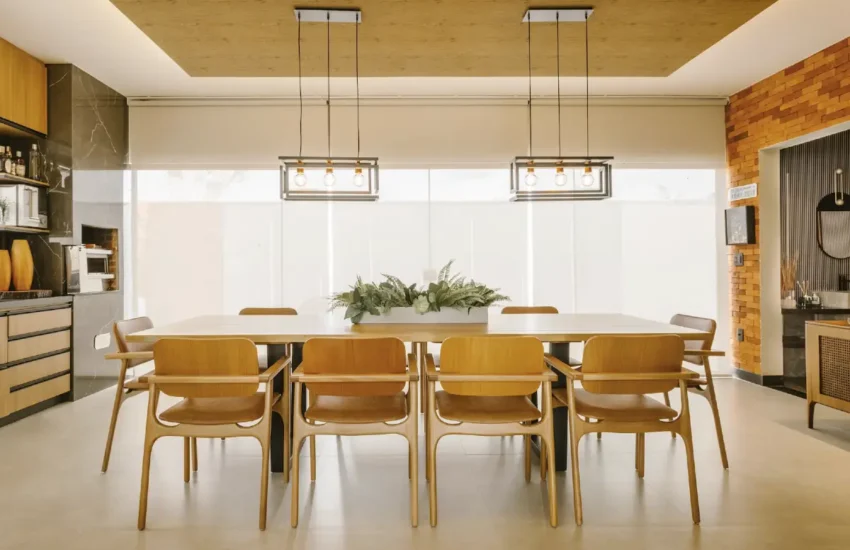What Sets 5754 Grade Aluminium Chequer Plate Apart?
Not all aluminium chequer plates are made equal. So, what exactly makes 5754 grade stand out? It’s not just a matter of appearance or texture. The real difference lies in how this specific grade performs under pressure, resists corrosion, and adapts to various environments.
If you’re working on a project where strength, reliability, and durability matter, 5754 might be the answer you’ve been looking for. But before making that call, it’s worth breaking down exactly what this material offers, and why it continues to be a go-to choice across demanding industries.

What Is 5754 Grade Aluminium?
5754 belongs to the 5000 series of aluminium alloys, which are known for their magnesium content. This particular grade has a higher amount of magnesium than many others, giving it a strong balance between strength and corrosion resistance.
It’s classified as a non-heat-treatable alloy, which means it gains its strength through cold working rather than heat treatment. This leads to good workability and excellent weldability, making it incredibly versatile.
You’ll commonly find it in tread plate or chequer plate form, where the raised pattern helps with grip and adds a level of surface toughness.
Core Properties That Make It Stand Out
There are quite a few reasons why 5754 chequer plate holds a strong reputation. Its qualities are well-rounded, practical, and proven in both structural and aesthetic applications.
Strength
5754 grade aluminium chequer plate offers higher strength compared to other common aluminium chequer plates such as 1050 or 3003. It doesn’t match the strength levels of steel, but for aluminium, it offers a very solid middle ground. It performs particularly well in areas where the plate will take regular knocks or pressure over time.
Corrosion Resistance
One of its standout features is its resistance to corrosion, especially in marine or coastal environments. This makes it a great fit for areas exposed to salt water, humidity, or outdoor elements in general.
Slip Resistance
The chequer pattern isn’t just for looks. It improves grip, which is ideal for walkways, stair treads, ramps, and any surface where slipping is a risk. Combined with its structural integrity, it becomes a practical safety solution.
Weldability and Formability
5754 is easy to weld without cracking or distorting, and it can be formed into various shapes depending on what’s needed. This makes it suitable for everything from flooring and toolboxes to more complex structures in vehicles or buildings.
Typical Applications Where It Shines
5754 grade aluminium chequer plate isn’t a niche product. It’s chosen across a wide range of industries thanks to its unique mix of durability, corrosion resistance, and workability.
Here are some common uses:
- Transport flooring – Its strength and non-slip surface make it ideal for trailers, vans, lorries, and buses.
- Marine environments – Perfectly suited for boat decks and docks thanks to its resistance to saltwater corrosion.
- Industrial flooring – Used in factories, workshops, and processing plants where durable, low-maintenance flooring is needed.
- Access ramps and stairs – The pattern improves traction, especially in wet conditions.
- Protective wall cladding – In both commercial and industrial settings, it protects surfaces from damage while adding a clean, functional finish.
Its appearance also makes it a smart option for decorative or visible panels in architectural projects.
Mechanical Performance and Grades
Within the 5754 category, there are different tempers (such as H114, H111, and H22) that affect hardness and flexibility. These variations are achieved through different levels of cold working.
The H114 temper is one of the most common for tread plates, as it provides a good balance between strength and formability. This temper allows the raised pattern to be stamped while still maintaining overall rigidity.
It’s important to match the temper to the task. If a project needs more flexibility for bending, a softer temper works better. For static load-bearing applications, a harder temper offers improved strength and wear resistance.
Comparing 5754 to Other Grades
To understand why 5754 is often preferred, it helps to look at how it compares to other grades of aluminium chequer plate:
- 1050 – Very soft and highly formable, but not very strong. Useful for decorative panels, but not great for heavy-duty use.
- 3003 – Offers slightly better strength than 1050 and good corrosion resistance, but still not as tough as 5754.
- 6061 – Stronger overall but not as corrosion-resistant in marine conditions. Also more difficult to weld.
What you get with 5754 is a balance that suits general-purpose and specialised use alike. It doesn’t excel in one area and fall short in another. Instead, it consistently performs well across multiple key properties.
Benefits That Go Beyond the Surface
The obvious benefits are easy to spot. Strength, corrosion resistance, anti-slip pattern. But there are other details that often get overlooked.
- Low maintenance – Once installed, it rarely needs attention. A quick wash now and then is usually enough.
- Sustainable – Like other aluminium alloys, it’s fully recyclable without loss of quality. That makes it a smart choice in sectors focused on reducing waste.
- Lightweight – While still strong, it weighs significantly less than steel alternatives. That makes transport and installation easier and more cost-effective.
- Resistant to wear – The raised tread pattern not only improves grip but also slows down surface wear in high-traffic areas.
These extras make it easier to work with, more affordable over time, and suitable for both temporary and permanent installations.
A Material Worth Considering
If you’re looking for a material that delivers on multiple fronts, 5754 grade aluminium chequer plate is well worth considering. It doesn’t just tick boxes for strength and resistance. It works across industries, performs in demanding conditions, and still manages to be easy to handle and cost-effective.
It’s the kind of material that quietly does its job, without needing much from you in return. And that’s exactly what makes it such a dependable choice.


